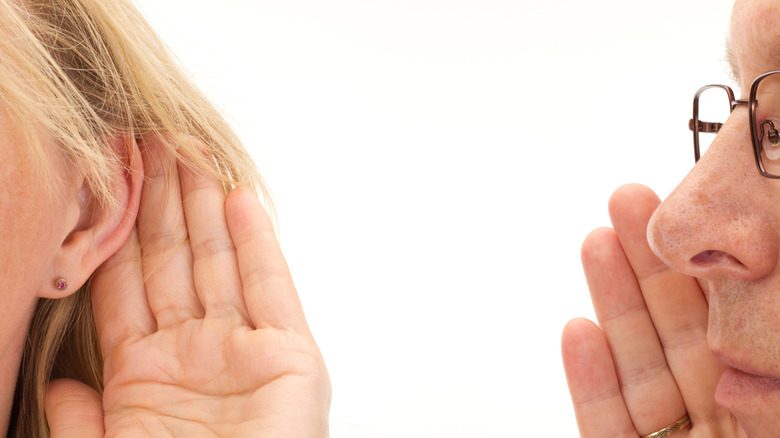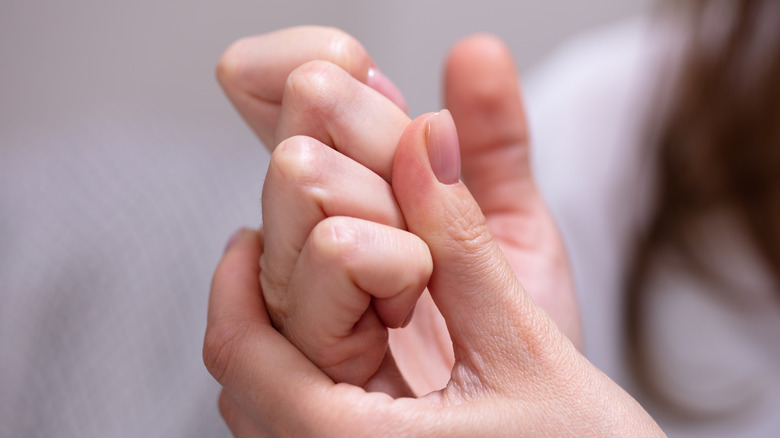The Common Health Myth Nearly 1 In 5 People Have Always Believed
New health myths seem to be popping up all the time. From miracle weight loss cures to oils that treat anything and everything, the Internet has become a whirlwind of old wives' tales that are, oddly, always new. But there are still some older myths that hang around.
We at Health Digest wanted to find out which common health myth was the most widely-held among our readers. More than 500 offered their input. Our poll had eight options for readers to choose from, including seven common myths and a write-in option. As with many of our polls, the majority of write-in answers were along the lines of "none", meaning about 9% of our readers have already ditched these commonly held beliefs.
The other 91% of our readers felt differently, however. They chose from myths that included the idea that aluminum in deodorant can cause cancer (about 5%) or that you can catch an STD from a toilet seat (8%). Almost 20% of our readers favored the belief that artificial sweeteners can give you cancer. But the myth that outranked them all is actually one of the oldest that we offered.
To crack or not to crack
Plenty of readers believed that you could get sick just from being out in the cold — almost 13% of them, in fact. Even a few of our writers were surprised to find that this was a myth. It's a long held belief that has inspired countless parents to bundle up their children for fear of them geting sick.
But there is one myth that is perhaps older still, or at least more widespread, and that is the belief that cracking your knuckles will give your arthritis. Almost 20% of our readers voted for this myth, including a few write-in votes under "other" that chose multiple myths. But cracking their knuckles was always on the list.
Harvard Health Publishing has done several articles on the topic, but the 2018 article gives the clearest and broadest description of why exactly cracking your knuckles doesn't actually cause arthritis. The article discusses a doctor who only cracked the knuckles on one hand during his life and tracked the development of arthritis in both hands, noting that there was no difference.
The article also links a study that is, admittedly, rather old, but the information has yet to be debunked. A 1975 study found that studies of seniors found no connection between their arthritis levels and their knuckle cracking habits. And, to date, there is no study that has found a connection.
Knuckle cracking might be annoying, and there are certainly more worrisome myths on our list. But readers can rest assured that their knuckles are safe, no matter how often they crack them.


